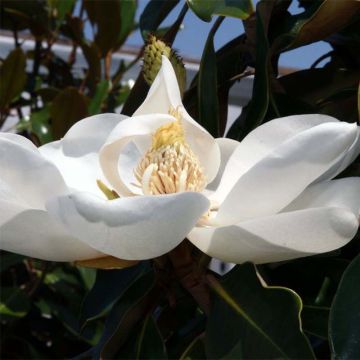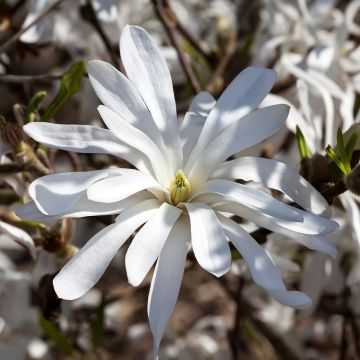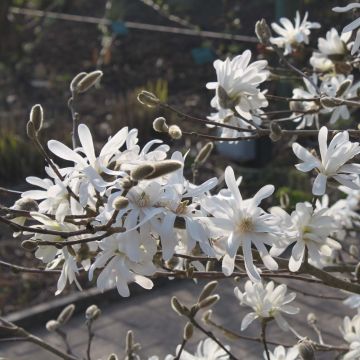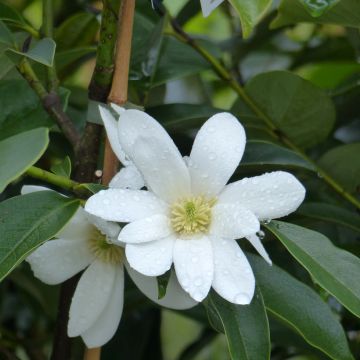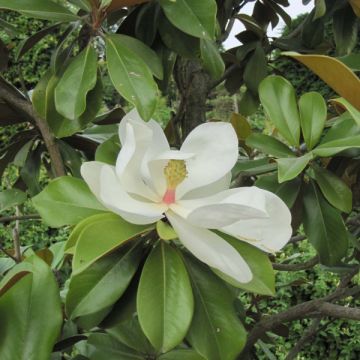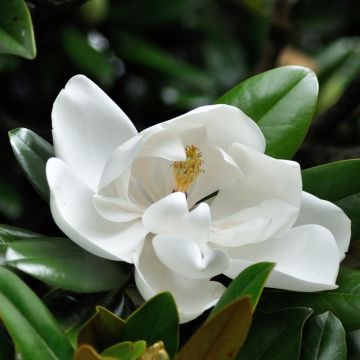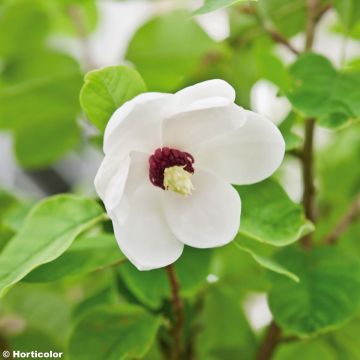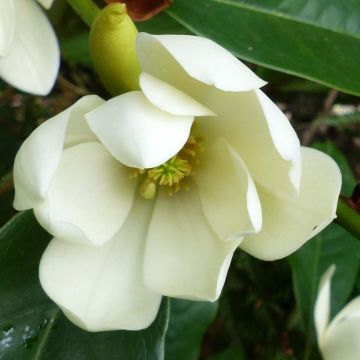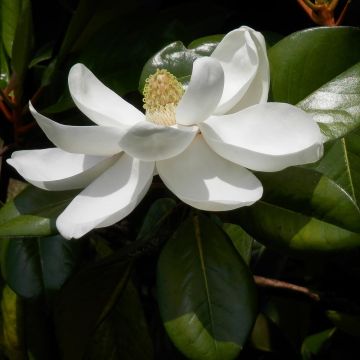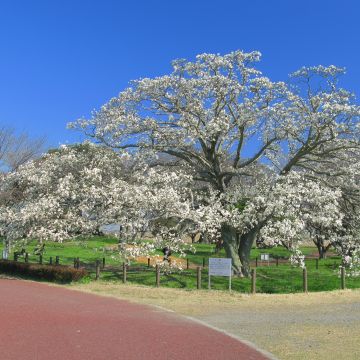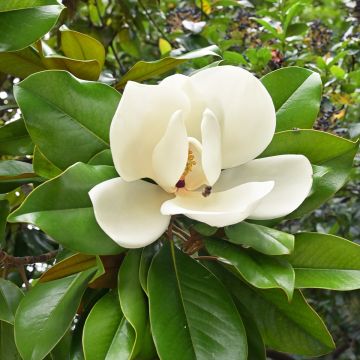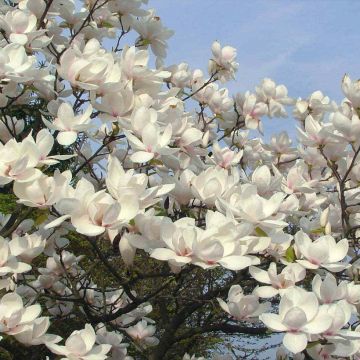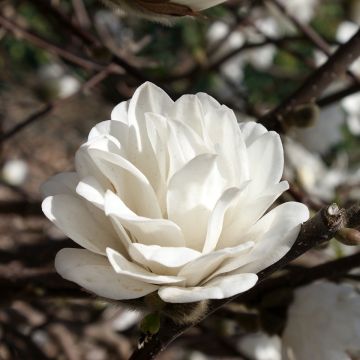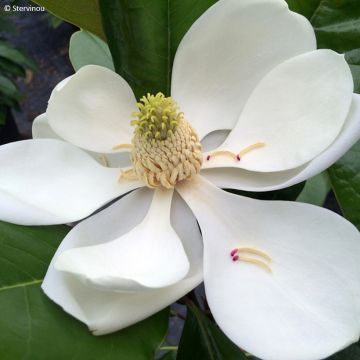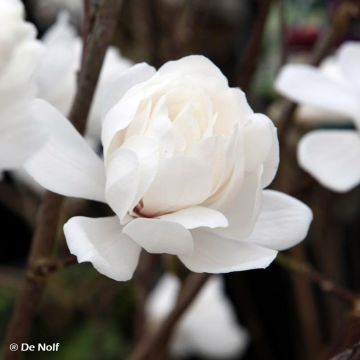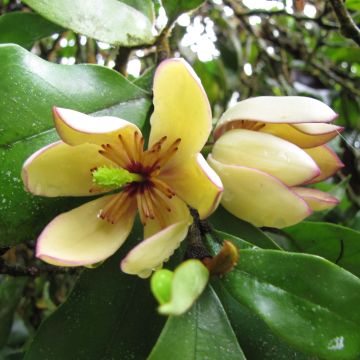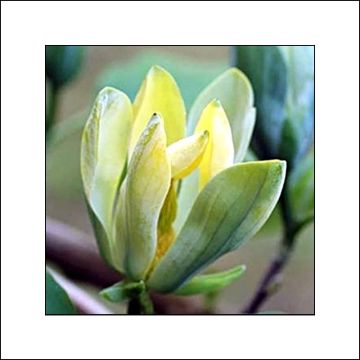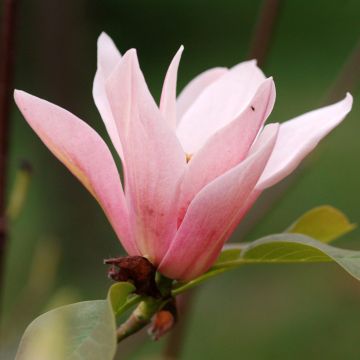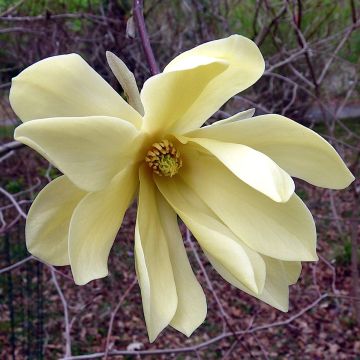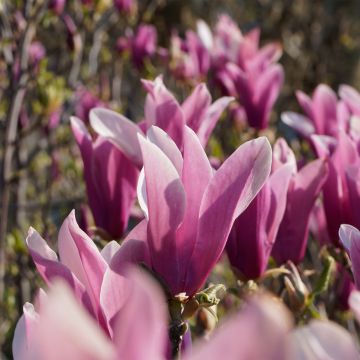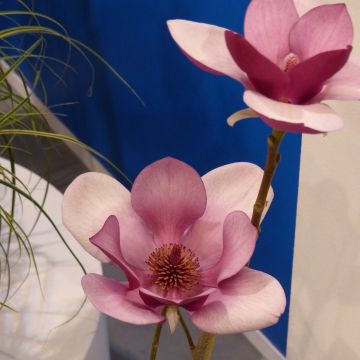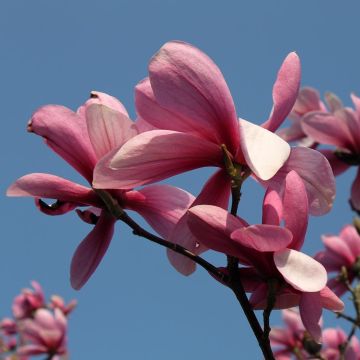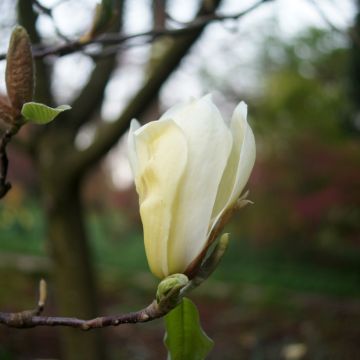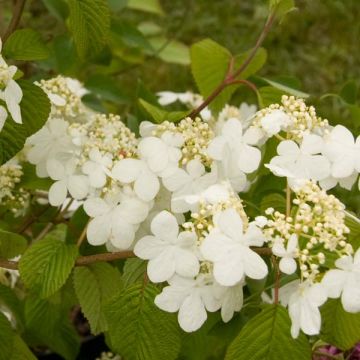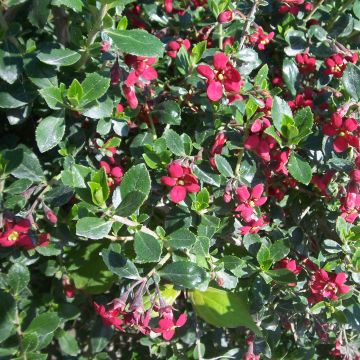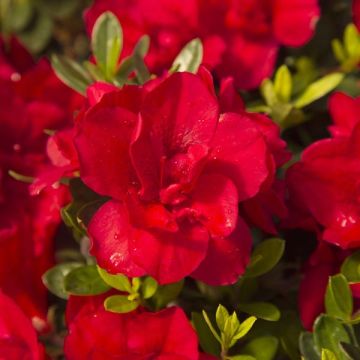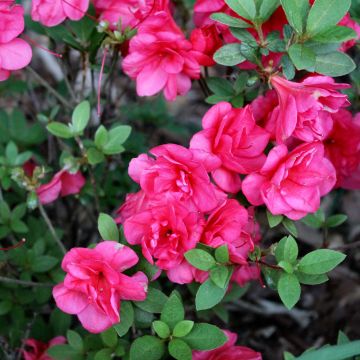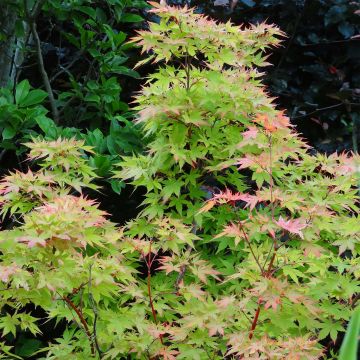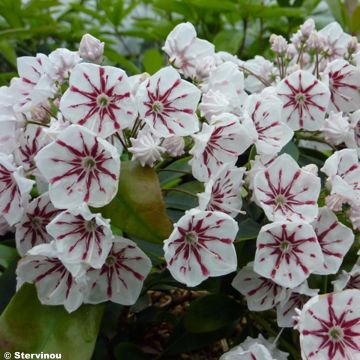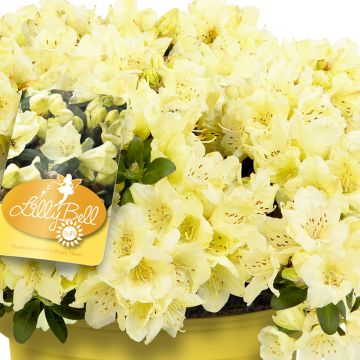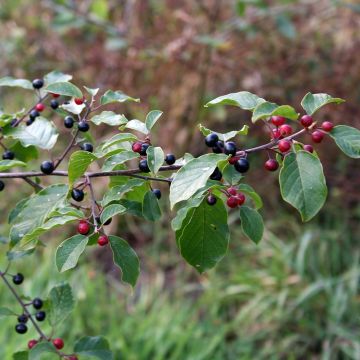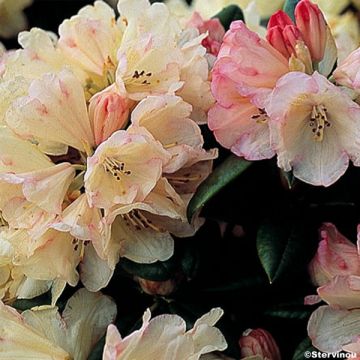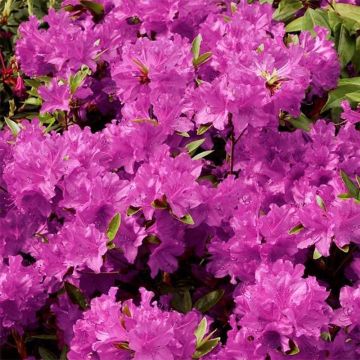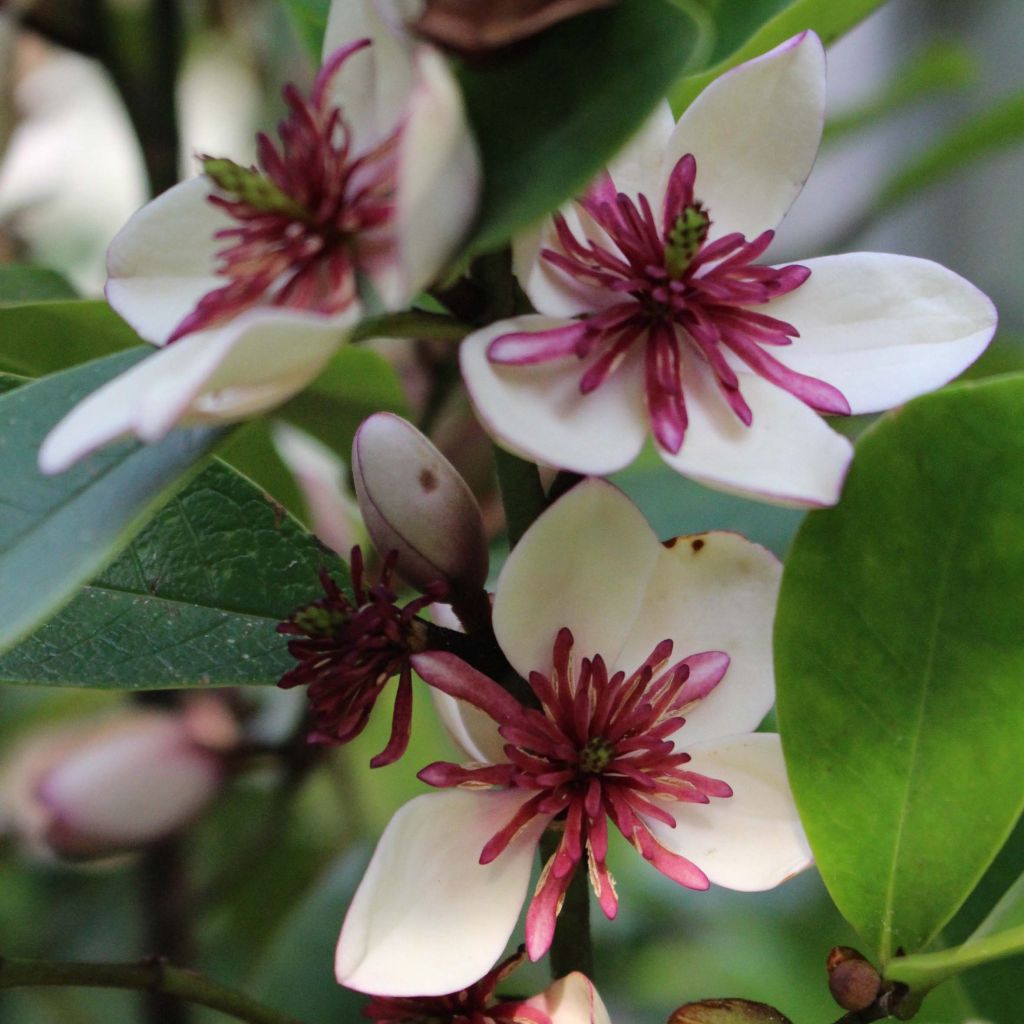

Magnolia White Caviar
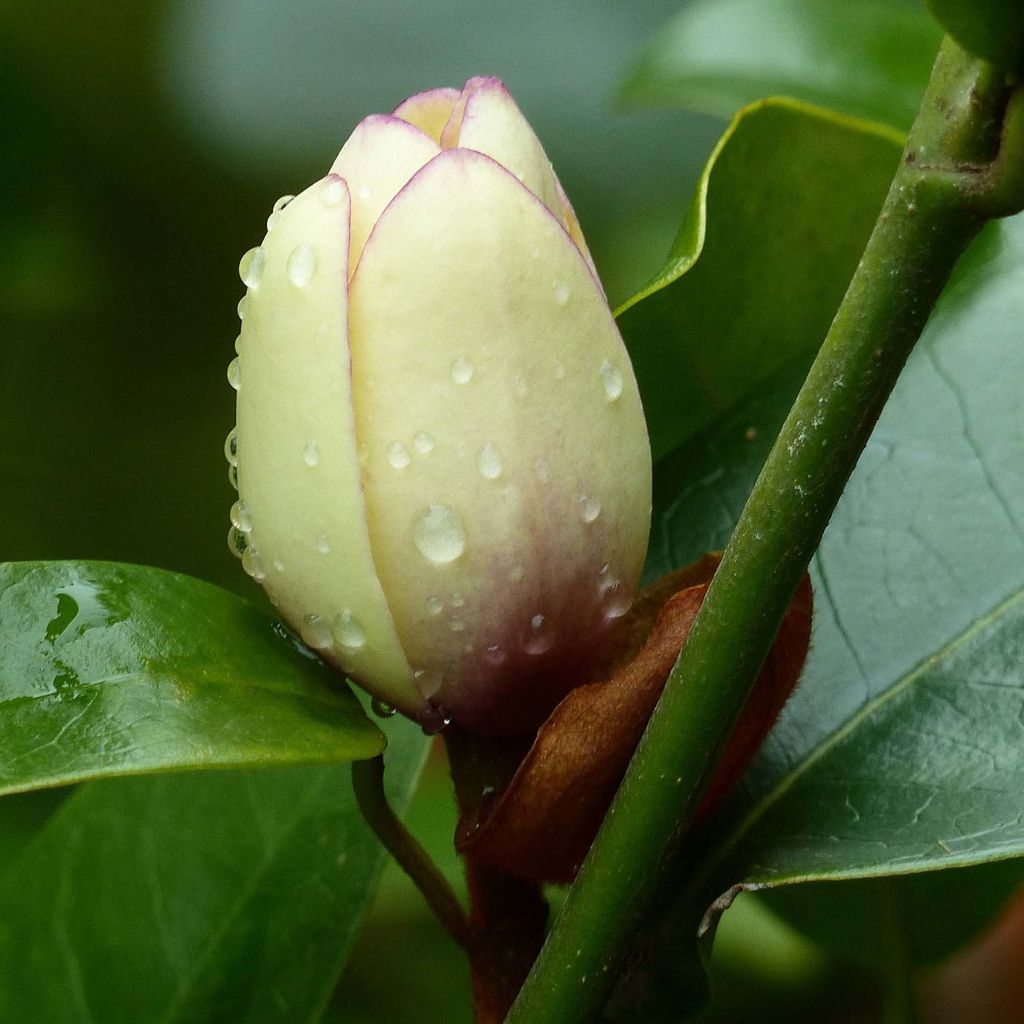

Magnolia White Caviar
Magnolia White Caviar
Magnolia laevifolia x figo White Caviar
Banana Shrub, Port Wine Magnolia
Why not try an alternative variety in stock?
View all →This plant carries a 24 months recovery warranty
More information
We guarantee the quality of our plants for a full growing cycle, and will replace at our expense any plant that fails to recover under normal climatic and planting conditions.
Oversize package: home delivery by special carrier from €6.90 per order..
Express home delivery from €8.90.
From €5.90 for pickup delivery and €6.90 for home delivery
Express home delivery from €8.90.
Delivery to Corse prohibited: UE law prohibits the import of this plant from mainland France to Corse as part of the fight against Xylella fastidiosa. Please accept our sincere apologies.
More information
Does this plant fit my garden?
Set up your Plantfit profile →
Description
Magnolia (formerly called Michelia) 'White Caviar' is a shrub with an exotic appearance and shiny, evergreen leaves. It produces many cream-white flowers with pink stamens, which are fragrant, in late spring and early summer. Vigorous but slightly frost-sensitive, it prefers rather mild oceanic climates, and a location in partial shade or light sun, in moist and acidic soil. It can also find its place on your terrace, to create an exotic and original decor.
Michelia 'White Caviar' belongs to the Michelia genus, which botanists have now reintegrated into the Magnolia genus. Therefore, you can find this plant under both names, Magnolia or Michelia 'White Caviar'. All of them belong to the very ancient Magnoliaceae family, which includes fossil plants that are 90 million years old.
This beautiful variety is the result of hybridisation between Michelia/Magnolia figo and M. laevifolia, two shrubs native to high-altitude forests in China. With a very exotic appearance, it has tough and glossy evergreen foliage: dark green on the front and slightly lighter on the back. Between May and July, the shrub produces delicate brownish-fawn flower buds, which eventually open into cream-white flowers about 4 to 6 cm (1.6 to 2.4 in) in diameter, with pink stamens. These flowers resemble miniature Magnolia grandiflora flowers. As with many Michelia plants, flowering is highly fragrant and reminiscent of the scent of ripe fruits like bananas. The shrub can reach a height of about 3 m (9 ft 10 in) and a width of 2 m (6 ft 7 in), with a fairly dense habit.
While it is robust and quite vigorous, Michelia 'White Caviar' has average hardiness: it is preferable not to expose it to temperatures regularly dropping beneath -10 °C (14 °F). Therefore, reserve a location in bright shade, well protected from east and north winds, which could quickly damage its beautiful foliage and compromise its flowering. Strong sunlight can also scorch its leaves. It appreciates moist and rich soil that does not dry out in summer, and rather acidic soil. In limestone soil, the plant does not develop well and its leaves turn yellow.
Its uniqueness allows it to be used as a standalone plant, highlighted in an exotic setting with neighbours like Fatsia polycarpa, Fuchsia regia, or Schefflera taiwaniana, and perennials like Boehmeria biloba and Hosta 'Halcyon', as well as ferns such as Athyrium otophorum var. okanum or Coniogramme emeiensis. Its dense habit also allows it to be used as a hedge, as well as in large pots. Its growth will then be more restricted, and care should be taken to ensure that the substrate does not dry out.
Report an error about the product description
Magnolia White Caviar in pictures
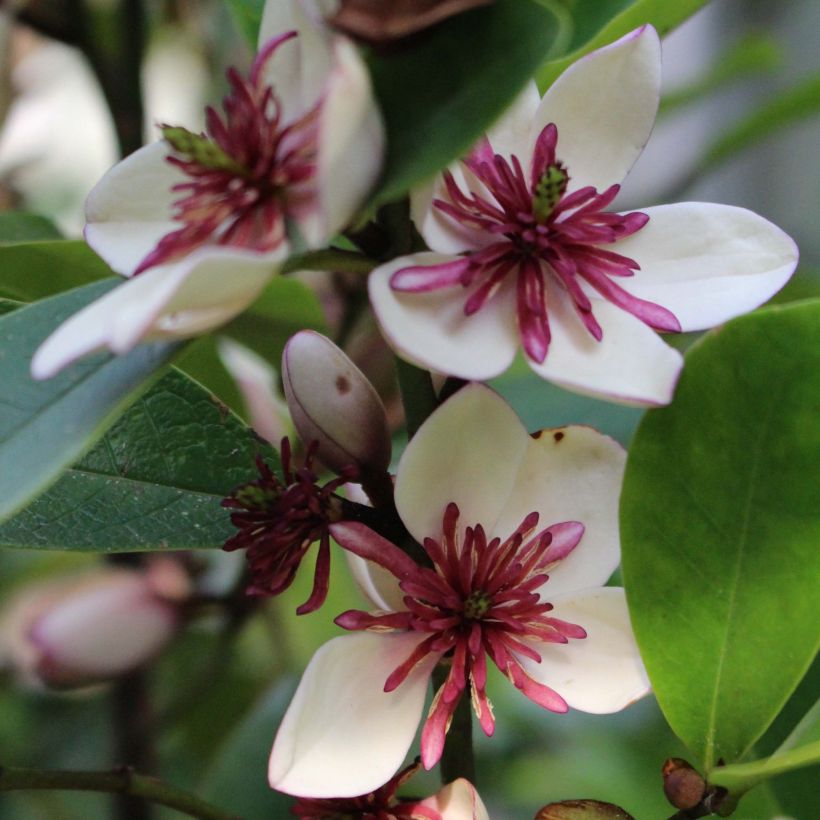

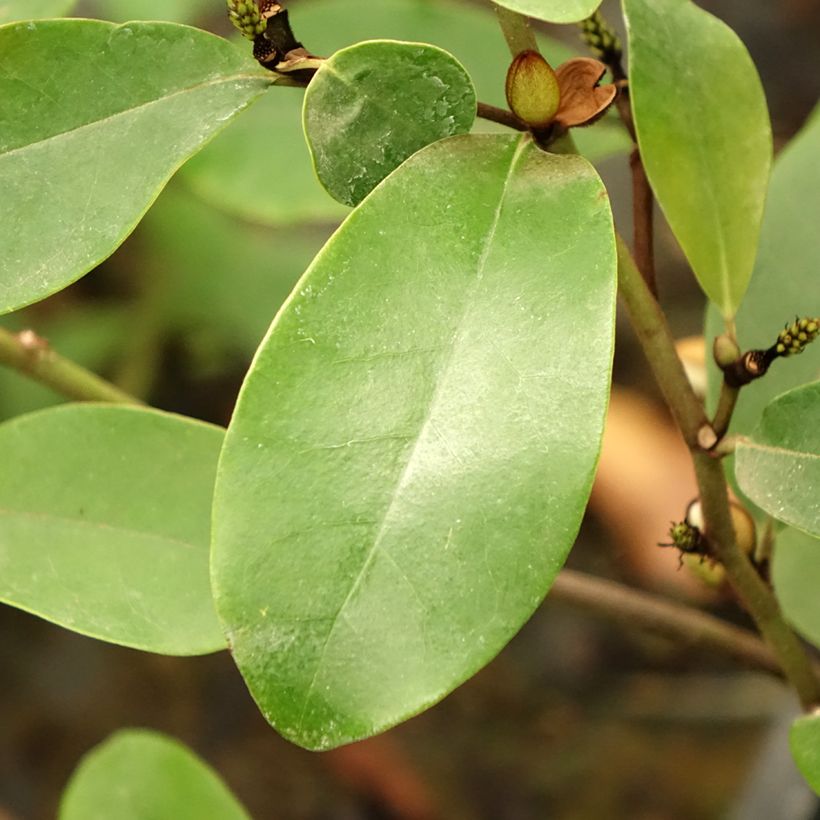

Plant habit
Flowering
Foliage
Botanical data
Magnolia
laevifolia x figo
White Caviar
Magnoliaceae
Banana Shrub, Port Wine Magnolia
Cultivar or hybrid
Other Magnolia
Planting and care
Michelia White Caviar prefers humus-rich, acidic soils rich in organic matter, from moist to dry and without stagnant humidity. It appreciates semi-shaded exposures, tolerates shade and avoids scorching exposures.
It can be grown in open ground in regions with mild climates, as its hardiness can be compromised below -10 °C (14 °F) even if it is planted in a sheltered location.
This shrub does not tolerate transplantation once it is established, so choose its location carefully. Its appearance and growth will be very different depending on whether it is planted in open ground or in a container, and whether it grows in shade or in a sunny exposure.
When it grows in shade, its habit is more open and flexible while its foliage is darker. On the other hand, if it is exposed to the sun, it will show a more compact habit with denser foliage and smaller and lighter green leaves. When grown in a large container, its growth is limited.
Watering should be regular in summer and greatly reduced in winter: in a cold greenhouse or conservatory, water (without too much calcium) should be spaced out, only when the substrate is dry on the surface for 1 cm (0.4 in). The banana shrub can be easily pruned after flowering. In late winter, before the start of vegetation, remove dead wood and intertwined branches to keep only vigorous branches and maintain a beautiful habit.
Planting period
Intended location
Care
-
, onOrder confirmed
Reply from on Promesse de fleurs
Shrubs for semi-shade
Haven't found what you were looking for?
Hardiness is the lowest winter temperature a plant can endure without suffering serious damage or even dying. However, hardiness is affected by location (a sheltered area, such as a patio), protection (winter cover) and soil type (hardiness is improved by well-drained soil).

Photo Sharing Terms & Conditions
In order to encourage gardeners to interact and share their experiences, Promesse de fleurs offers various media enabling content to be uploaded onto its Site - in particular via the ‘Photo sharing’ module.
The User agrees to refrain from:
- Posting any content that is illegal, prejudicial, insulting, racist, inciteful to hatred, revisionist, contrary to public decency, that infringes on privacy or on the privacy rights of third parties, in particular the publicity rights of persons and goods, intellectual property rights, or the right to privacy.
- Submitting content on behalf of a third party;
- Impersonate the identity of a third party and/or publish any personal information about a third party;
In general, the User undertakes to refrain from any unethical behaviour.
All Content (in particular text, comments, files, images, photos, videos, creative works, etc.), which may be subject to property or intellectual property rights, image or other private rights, shall remain the property of the User, subject to the limited rights granted by the terms of the licence granted by Promesse de fleurs as stated below. Users are at liberty to publish or not to publish such Content on the Site, notably via the ‘Photo Sharing’ facility, and accept that this Content shall be made public and freely accessible, notably on the Internet.
Users further acknowledge, undertake to have ,and guarantee that they hold all necessary rights and permissions to publish such material on the Site, in particular with regard to the legislation in force pertaining to any privacy, property, intellectual property, image, or contractual rights, or rights of any other nature. By publishing such Content on the Site, Users acknowledge accepting full liability as publishers of the Content within the meaning of the law, and grant Promesse de fleurs, free of charge, an inclusive, worldwide licence for the said Content for the entire duration of its publication, including all reproduction, representation, up/downloading, displaying, performing, transmission, and storage rights.
Users also grant permission for their name to be linked to the Content and accept that this link may not always be made available.
By engaging in posting material, Users consent to their Content becoming automatically accessible on the Internet, in particular on other sites and/or blogs and/or web pages of the Promesse de fleurs site, including in particular social pages and the Promesse de fleurs catalogue.
Users may secure the removal of entrusted content free of charge by issuing a simple request via our contact form.
The flowering period indicated on our website applies to countries and regions located in USDA zone 8 (France, the United Kingdom, Ireland, the Netherlands, etc.)
It will vary according to where you live:
- In zones 9 to 10 (Italy, Spain, Greece, etc.), flowering will occur about 2 to 4 weeks earlier.
- In zones 6 to 7 (Germany, Poland, Slovenia, and lower mountainous regions), flowering will be delayed by 2 to 3 weeks.
- In zone 5 (Central Europe, Scandinavia), blooming will be delayed by 3 to 5 weeks.
In temperate climates, pruning of spring-flowering shrubs (forsythia, spireas, etc.) should be done just after flowering.
Pruning of summer-flowering shrubs (Indian Lilac, Perovskia, etc.) can be done in winter or spring.
In cold regions as well as with frost-sensitive plants, avoid pruning too early when severe frosts may still occur.
The planting period indicated on our website applies to countries and regions located in USDA zone 8 (France, United Kingdom, Ireland, Netherlands).
It will vary according to where you live:
- In Mediterranean zones (Marseille, Madrid, Milan, etc.), autumn and winter are the best planting periods.
- In continental zones (Strasbourg, Munich, Vienna, etc.), delay planting by 2 to 3 weeks in spring and bring it forward by 2 to 4 weeks in autumn.
- In mountainous regions (the Alps, Pyrenees, Carpathians, etc.), it is best to plant in late spring (May-June) or late summer (August-September).
The harvesting period indicated on our website applies to countries and regions in USDA zone 8 (France, England, Ireland, the Netherlands).
In colder areas (Scandinavia, Poland, Austria...) fruit and vegetable harvests are likely to be delayed by 3-4 weeks.
In warmer areas (Italy, Spain, Greece, etc.), harvesting will probably take place earlier, depending on weather conditions.
The sowing periods indicated on our website apply to countries and regions within USDA Zone 8 (France, UK, Ireland, Netherlands).
In colder areas (Scandinavia, Poland, Austria...), delay any outdoor sowing by 3-4 weeks, or sow under glass.
In warmer climes (Italy, Spain, Greece, etc.), bring outdoor sowing forward by a few weeks.

































